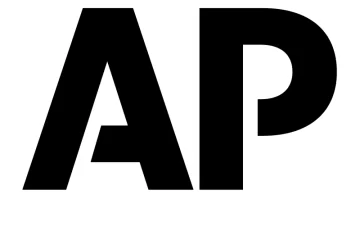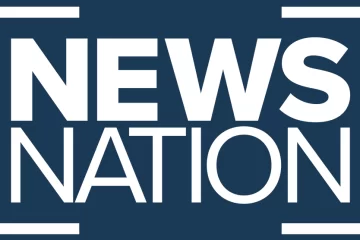CNN’s Paula Newton interviews Gershon Baskin, Middle East Director for the International Communities Organization, about the logistics around a potential deal with Hamas for an initial release of some hostages held in Gaza.
NEWTON: Joining me now from Jerusalem is Gershon Baskin. He’s the Middle East Director with the International Communities Organization and he was instrumental in securing the release of Israeli soldier Gilad Shalit from Hamas in 2011. And I have to say as well, you are responsible for a lot of the dialogue that’s gone on at high levels with Hamas and Israel. I know that it must be agony right now what the families are going through especially after the incredibly emotional day that they had yesterday. From all you’ve heard do you believe that they are close to a deal now?
GERSHON BASKIN, EX-HOSTAGE NEGOTIATOR: Everything around us seems to tell us that – Yes this is what we’re hearing both out of Qatar, out of Jerusalem, out of Washington. So it seems that the people in the know must know something that the rest of us don’t know for sure. What we know is this has been a rollercoaster, particularly for all the families who keep hearing that they’re close to a deal and then nothing happens.
[00:30:19]
We really have to hope that there is something genuine happening now. But still, as was said in the introduction, we’re still talking about a small number of the hostages and leaving about 80 percent of them behind.
PAULA NEWTON, CNN INTERNATIONAL ANCHOR: Which you, of course, would say is predictable, given the fact that the hostages are valuable for Hamas. But you also point to something else. I mean, let us in on what the logistics of this will look like, even if there is a deal, and how difficult it will be to keep that deal together.
BASKIN: The International Red Cross is going to be very, very busy. Because they will be the ones on the border, receiving the hostages, checking their identity, determining if they need immediate medical care. They’ll be on standby with ambulances and, of course, in direct contact with the Egyptians and with the Israelis to make sure the people are received and transferred, first to Egypt and then to Israel.
If there’s a prisoner released on the Israeli side, they will be checking the prisoners who will be boarding buses from Israeli prisons. And it’s not clear where they’ll be sent, either to the West Bank or to Gaza or abroad is even a possibility. And the International Red Cross will be there handling that, as well.
They’re probably the only third party who’s trusted and has experience doing this kind of work. It will be a slow process, particularly if Hamas is only willing to release about five or ten of them a day, drawing it out as long as possible to extend the ceasefire.
It seems that Hamas is hopeful that the longer the cease-fire is prolonged, the more international pressure there will be on Israel to stop the war entirely. That’s very unlikely to happen. But it will be also very difficult to renew negotiations for more prisoner releases once the war recontinues.
NEWTON: You know, you pointed out before, obviously, that Israel will have to make compromises here, no matter what it does. Israel, the IDF have been telling us for weeks now that they believe hammering Hamas hard, the way they have been in Gaza, makes it more likely that hostages will be released.
Do you believe that? Do you believe that that’s the way this is playing out?
BASKIN: Personally, I don’t believe that. I think it has prolonged the talks and made it more difficult to negotiate a deal. This deal should have been done in the second or third week of the war.
And here we are in the sixth week of the war. But it’s really difficult to argue with military commanders and security experts. I am not one of them. I do know Hamas, and I think that, also, what I heard from the Egyptian side, is that they were preparing a deal with a list of names, in fact, three weeks ago.
But then he got held back once the Israelis surrounded the city of Gaza and began to penetrate within the city. So I believe that it’s not necessarily so.
But again, it’s a gamble. We don’t know. Maybe the Israeli security experts are right, and maybe I’m right. We have no way of knowing, and it’s one of these what if things that has no conclusion to it.
NEWTON: Yes. And you really hit the nail on the head there in terms of what we’re discussing all of this, and yet, those families live in agony every minute. I know. I speak to some of them, and I can’t imagine, if they’re watching us now, how they just want to scream at us and everyone saying, Just get our loved ones home.
And to that point, I want to ask you, what do you make of the internal political situation in Israel right now? I mean, it was incredibly contentious what happened at the Knesset and those families. Just with the emotion pouring out of them against those politicians. We don’t have any insight of what went on with the war cabinet. But given the emotion, it must have been an incredibly difficult meeting.
BASKIN: For sure. Some of the families walked out before the end of the meeting when they heard from the minister of defense that the first priority remains the war priority, the goal dismantling Hamas.
Apparently, the prime minister, Netanyahu, afterwards assured the families that getting out the hostage was the primary goal and everything was being done to get them out. There are a lot of people who don’t believe our prime minister. He has very little confidence amongst the public, particularly after October 7th.
That lack of confidence is growing every day in Israel as more and more people are calling for his resignation. The argument is not should he resign, but when he should resign. And the majority still think it should be at the end of the war and not during the war. But those voices are loud and clear that Netanyahu will have his day of reckoning sooner or later.
NEWTON: Yes. Again, incredibly frustrating for the families who have to deal with these politics. As I say, they just want to hug their loved ones.
Gershon Baskin, I really want to thank you. You’ve been one of the only people to give us this kind of insight as this terrible conflict continues. Appreciate it.
BASKIN: Thank you.


